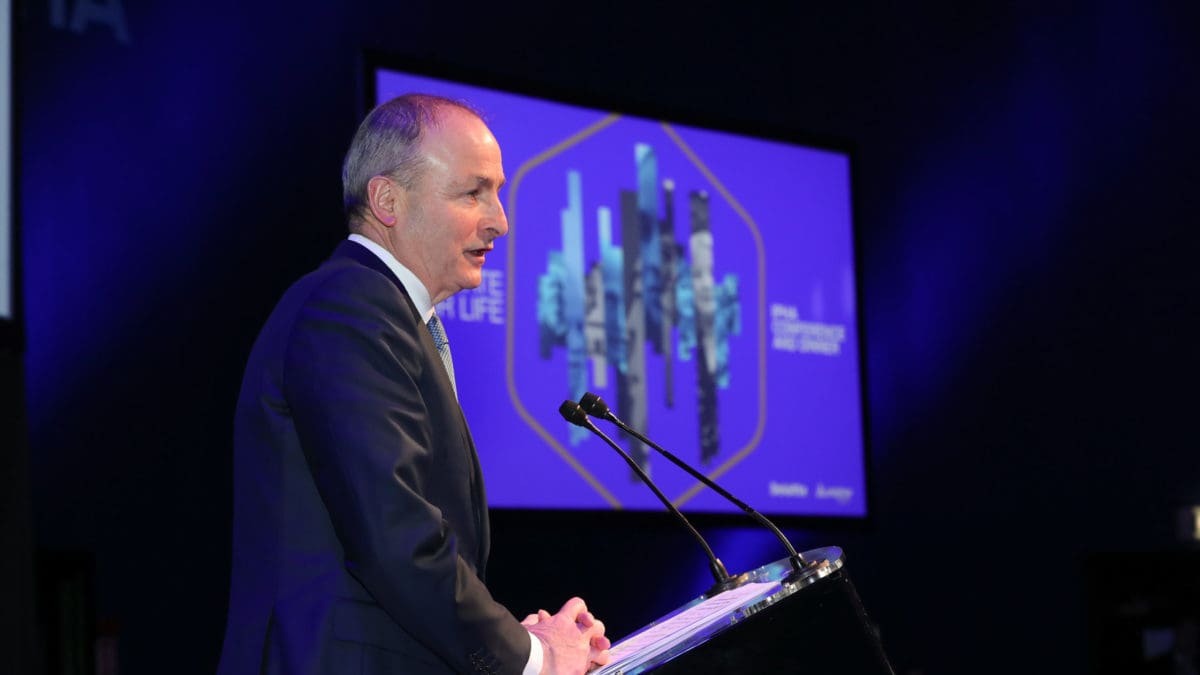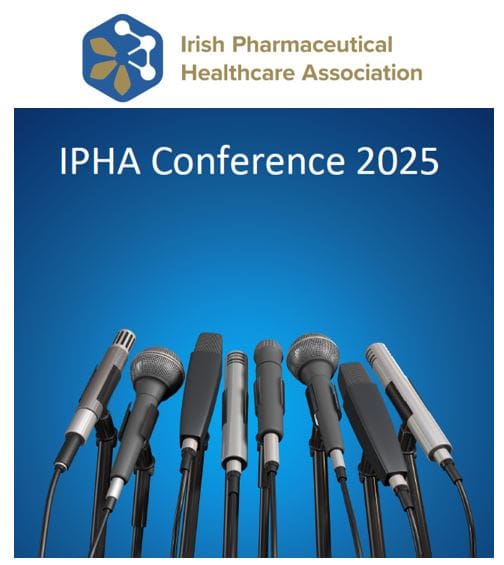IPHA Conference 2023 Tánaiste’s speech


Irish Pharmaceutical Healthcare Association Annual Conference
An Tánaiste, Micheál Martin TD
Thank you Michael for your very warm and suspiciously complimentary introduction.
And good evening ladies and gentlemen.
I am very grateful to have been asked to address your conference and be part of tonight’s event.
Those of you who know me know that my interest in your work is genuine and has been with me throughout my life and career.
So the opportunity to share the evening with you was one I was delighted to embrace.
As it happens, throughout my time as Taoiseach and now in my work as Tánaiste, the country has faced a series of important centenaries and anniversaries.
And in the course of performing my duties I’ve been honoured to give the keynote addresses at many of these events – commemorating some of the foundational and most consequential moments and decisions in the country’s history.
That has required a lot of reflection on my part, on the journey we’ve taken as a country, the progress we’ve made, and how different the Ireland of the 2020s is to the Ireland of the 1920s, or indeed the 1970s.
When I was thinking about what I’d like to talk about tonight, it struck me just how connected your industry is to this story of our country’s progress.
In his excellent book ‘In Fact, An Optimist’s Guide to Ireland at 100’, Mark Henry has set out many of the important but rarely discussed facts of that story.
He opens his account with the health of the nation.
He shows us that over the course of the century, we have more than halved our death rate; the likelihood of a child surviving their first year has improved 25-fold; life expectancy has soared and we now live 25 years longer than those alive when we achieved independence; we have eliminated or hugely reduced nearly all the leading diseases of 1922; cancer mortality rates have been in decline for the past 30 years; and death from heart disease has decreased by two thirds in the past 40 years.
The investment, research, innovation and expertise of your members and your industry has been central to all of that.
Another key policy focus of mine over the course of my life and career is education.
I have no doubt, and I repeat it every chance I get, that education is the foundation of our country’s economic and social progress. Since independence, but particularly over the course of the last fifty years.
And the fact is that our country’s focus on education was an important part of the decision-making process for many of your members when they first decided to establish a base here, in some cases many decades ago.
But it has not just been a one way process, and I’m very conscious of the great work that many of you are doing with many centres of further and higher education around the country to continue to upskill young people and enhance the research and innovation agenda.
Going back to Mark Henry for a moment, he notes that today more than half our population has completed Higher Education – a figure that has doubled in just twenty years.
As a state we continue to invest heavily in education.
And I was also very pleased to ensure the establishment of a new Department of Further and Higher Education, Research, Innovation and Science upon formation of this Government.
In terms of education, ours is a mutually beneficial relationship, and again a story of our country and your industry growing and advancing together.
Obviously, the other big theme in our national story has been the journey from one of the poorest countries in Europe, with abject poverty widespread, to becoming one of the wealthiest nations in the world, with full employment and the number of people employed in high skilled jobs up by 150% in the last thirty years.
And once again, your industry has been central to the story.
We are now home to nine out of the top ten pharmaceutical companies in the world.
We export more than €100 billion.
More than 42,000 men and women are employed in IDA client companies.
We’re home to 90 manufacturing plants, with 50 of them FDA approved.
And more than €12 billion has been invested in the industry in the last decade alone.
It is a phenomenal performance, and I am very pleased to take the chance tonight to acknowledge and pay tribute to it.
But looking back is only a very small part of my job.
My primary responsibility is to look forward and make the decisions necessary to ensure that Ireland’s story continues to be one of expanding opportunity, better health outcomes for citizens, further sustainable economic growth, social solidarity, and strong, skilled employment.
And I am confident that your industry will continue to be a big part of all of that.
As a Government, our responsibilities include making sure that the economic, educational, regulatory and social environment remains supportive for your sector.
They also include how we interact with you directly, as a partner and as a customer.
Before I move onto the sometimes, understandably, complicated customer / supplier relationship, I do want to take a moment to reflect on how we have worked together through some very challenging episodes over the last few years.
Your work in preparing for and managing the impact of Brexit has been exemplary.
And I want to record the Government’s appreciation for your response to the shortage of cold and flu medicines over the last few months.
But in particular, I want to acknowledge your efforts during the Coronavirus pandemic.
Managing the country’s response to the pandemic took up a lot of my time as Taoiseach and I know first hand and at close quarters, along with many of you in this room tonight, the sheer scale and complexity of the work that went into your response.
It saved lives, helped us to move away from restrictions more quickly, and helped ensure a strong economic and social recovery in the country.
I thank you for it.
As I said, we are also your customer.
A very good customer.
Obviously a big part of the improving health story that I referenced earlier has been successive Governments investing more in health care.
And to quote Mark Henry one final time, “The Great Big Miracle of Human Progress comes at a cost”.
Irish public health spending has increased 14-fold over the last 50 years and our state expenditure on pharmaceuticals has doubled in just the last ten years, from €1.3bn in 2012, to €2.6bn in 2022.
It now represents one of the largest components of overall health expenditure and with the growth in demand for high tech and increasingly personalised drugs, the pressure for further increased spending is only going in one direction.
But our successes as a nation notwithstanding, State resources are finite.
Together, we need to find ways to enable you to continue innovating and bringing these miraculous products into the world, while at the same time ensuring access to them for as many people as possible while maintaining sustainable public finances.
I believe that with good faith and mutual respect among all the parties, we can achieve that.
Two new Framework Agreements on pricing and supply of medicines were signed in December 2021 with you and with your colleagues in Medicines for Ireland, taking us up to 2025.
These were an important step in reducing prices, improving access for patients and ensuring ongoing State investment in new drugs.
The Pharmaceutical Strategy for Europe will be another important dynamic, while my colleague the Minister for Health Stephen Donnelly last week published the Mazars Report.
I know Stephen talked to you this morning about what we’re doing with this and that you have welcomed publication of the report.
I am hopeful that the new Department of Health / HSE Implementation Group that he is establishing to consider and progress the Report’s recommendations will get moving quickly.
SO, in summary and in conclusion, thank you again for the invitation to be here this evening.
Thank you for your investment in and commitment to Ireland.
And thank you for your life enhancing and life-saving research and innovation.
I look forward to working with you to continue improving access and reducing the cost of medicine.
And I look forward to your continued contribution to the social and economic story of our country.
Go raibh mile maith agaibh.

